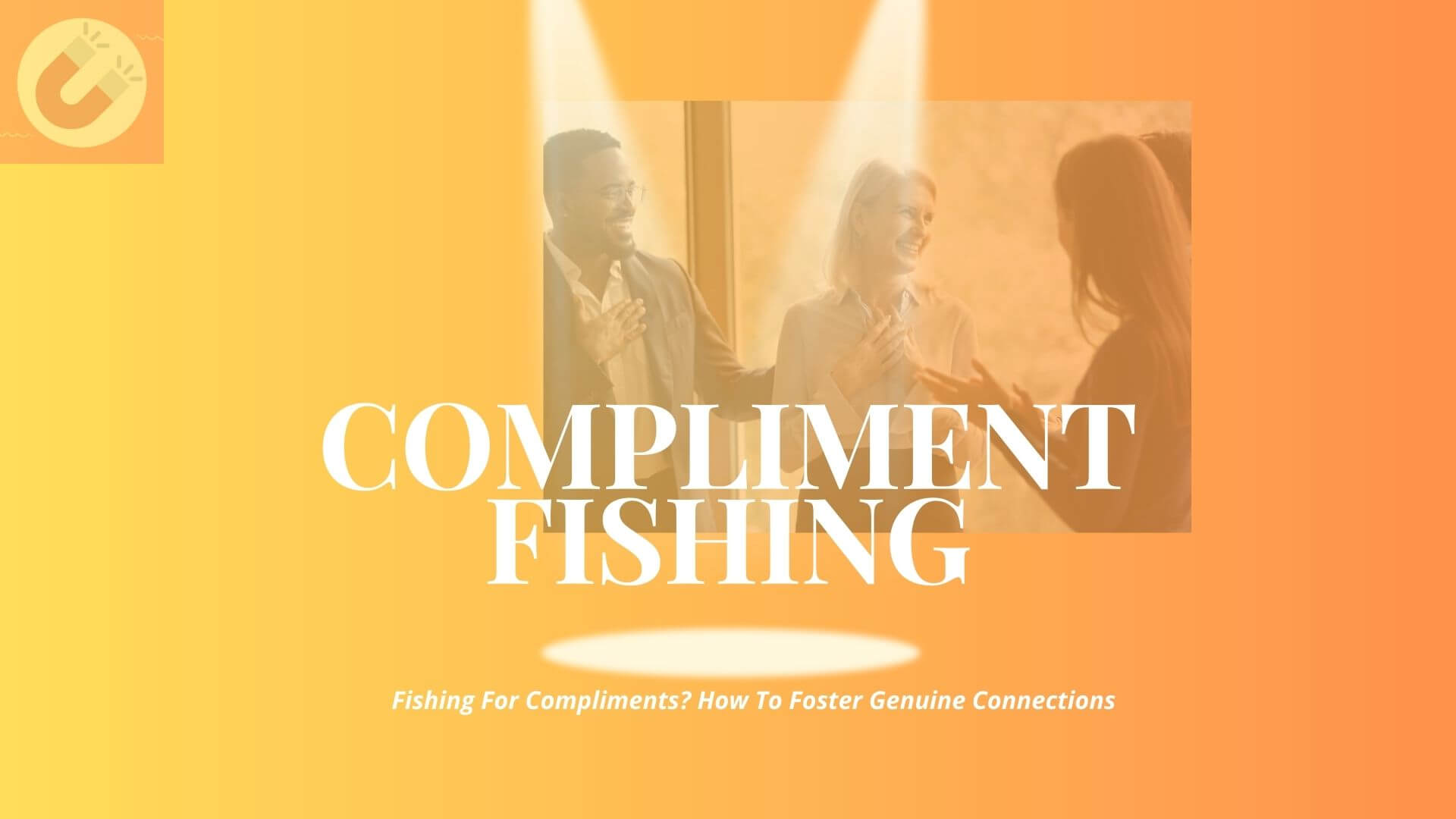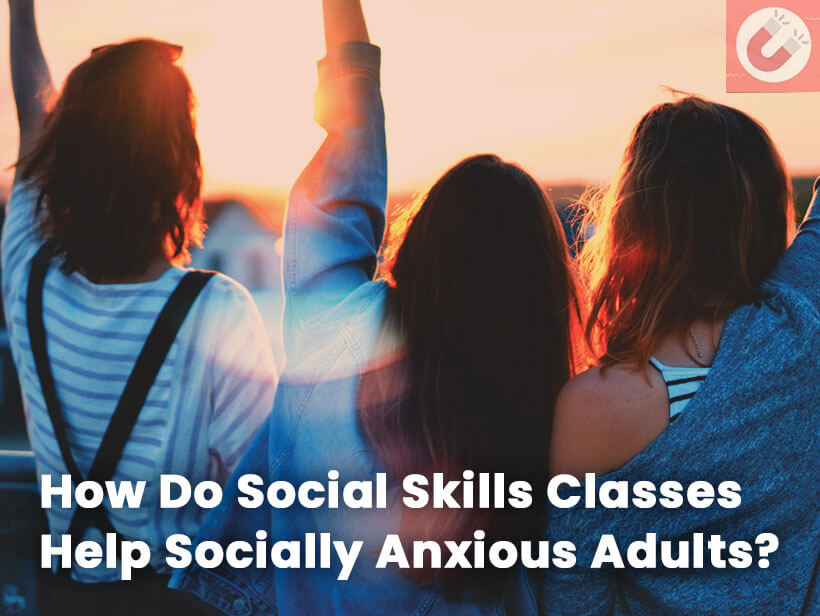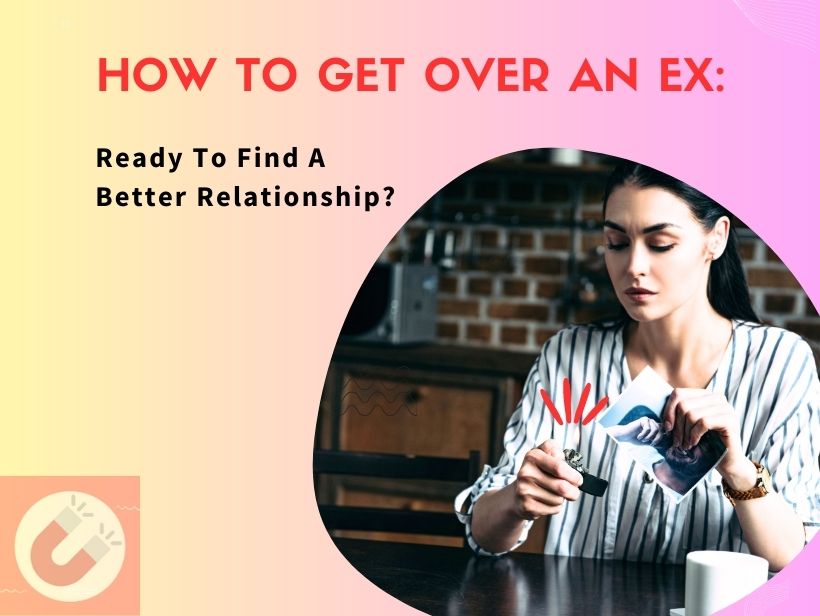What Is Compliment Fishing?
Fishing for compliments is when someone tries to get other people to say nice things about them. Like, if a person always talks about the great things they’ve done, hoping others will give them praise and show them admiration, that’s fishing for compliments.
Do you ever find yourself compliment fishing in conversations?
Or have you recently been on the other end of a conversation where people seem to be seeking constant praise or validation? In this article, we’ll explore the ins and outs of compliment fishing and other forms of validation seeking, and you’ll learn why they’re the opposite of authentic and how these kinds of needy behaviors tend to totally kill the vibe and limit your potential.
Fishing for compliments can lead to awkward exchanges and hinder genuine communication, creating barriers to authentic connections.
We’ll help you understand the negative impact that fishing for compliments has on genuine conversations and building healthier relationships, and provide practical tips to help you break the habit of seeking external validation.
We’ll also cover how to handle conversations that veer into compliment fishing territory, and give you some tips for how to get them back on track with empathy.
So, let’s dive in and learn how to and have more authentic conversations that lead to more meaningful relationships, and create less awkward moments and missed opportunities.
Why Do People Fish For Compliments?
People who fish for compliments may feel the need to have their worth and value confirmed by others because they may not be able to provide this confirmation for themselves.
Seeking constant approval and praise from those around you can be perceived negatively by others, as it may come off as a form of emotional manipulation or attention-seeking behavior. While it’s normal to want recognition for our achievements, consistently seeking validation in this way can be draining for others and may even lead to social alienation.
Deep down, it’s usually caused by a desire to boost one’s self-esteem through external validation seeking and receiving a steady stream of praise from others. It’s often associated with a sense of insecurity and lack of self awareness.
That said, the behavior can also be seen as a cry for help. People who regularly fish for compliments might benefit from professional help, like counseling or social skills coaching to build their self-esteem and learn to derive validation “from within” rather than relying solely on external sources that are out of their control.
When Is It OK To Share Your Accomplishments?
There’s a fine line between sharing one’s achievements with genuine pride and fishing for compliments. While the latter can be harmful to relationships, the former is a healthy part of personal and social development. It’s important to learn how to express our accomplishments in a way that’s grounded in a solid sense of self-worth rather than a desperate need for external validation.
The key lies in finding a healthy balance
This might involve learning to accept compliments gracefully when they’re given sincerely and naturally, rather than actively seeking them out, and also learning to find satisfaction and self-worth in our own accomplishments, independent of others’ reactions.
Mutual Respect, Honesty, And Genuine Communication: The Main Ingredients To Authentic Relationships

“ No legacy is so rich as honesty.”
– William Shakespeare
People who seek external validation and engage in the act of compliment fishing are missing out on the opportunity to form truly authentic relationships that foster a sense of understanding, trust, and acceptance, and promote healthier emotional well-being for all parties involved.
Authenticity allows people to express themselves honestly and openly without fear of judgment or rejection, which reduces misunderstandings and conflicts.
How To Build Authentic Relationships
Authentic relationships are not built on the shaky ground of constant approval-seeking, but rather, on the firm foundation of mutual respect, honesty, and genuine communication.
These important relationships are not achieved overnight, nor are they maintained effortlessly.
They demand work, commitment, and a constant desire to improve. However, the benefits they bring far outweigh the efforts. They offer a sense of belonging, an environment of mutual growth, and the joy of being accepted for who you truly are.
So, let’s strive to infuse our relationships with these key ingredients: mutual respect, honesty, and genuine communication.
1. Show Mutual Respect: The Cornerstone of Healthy Relationships
At the heart of every authentic relationship, mutual respect is vital. Respect enables a balanced relationship where both parties feel valued and heard. It is the acknowledgment that every individual has their own value, ideas, and perspectives that are unique to them.
A respectful relationship does not mean you always agree with the other person, but it does require a willingness to listen and consider their viewpoint without judgement.
2. Maintain Honesty: The Foundation of Trust
Honesty is crucial for building trust in any relationship. It requires courage to be honest, especially when dealing with difficult issues, but it is this bravery that strengthens the bonds of authenticity. Dishonesty erodes trust, which is a fundamental building block in all types of relationships – from forming new friendships to finding romance.
Being honest does not mean being harsh or insensitive; rather, it implies speaking your truth kindly, tactfully, and compassionately. It’s especially important to note that when criticizing someone, it’s crucial to do so constructively, focusing on the issue at hand rather than on the person.
3. Be Genuine In Your Communication: The Glue That Holds Everything Together
Genuine communication is the glue that holds everything together. It is more than just expressing thoughts and feelings. It involves active listening, empathy, and understanding. Genuine communication is transparent and direct, but also respectful and considerate.
It means not only sharing what’s on your mind, but also being open to hearing and understanding what’s on the other person’s mind. This reciprocal exchange fosters deeper connections and enhances the authenticity of relationships.
Why does fishing for compliments have such a negative impact on relationships?
Compliment fishing is the act of seeking praise or validation from others, often through indirect means. This behavior can manifest in various ways, such as asking leading questions, downplaying achievements, or making self-deprecating comments.
While it may seem harmless, compliment fishing can create uncomfortable situations and hinder open communication. By understanding this behavior and its impact, we can foster more authentic and meaningful connections.
How does compliment fishing affect different types of relationships?
Compliment fishing, which refers to the act of seeking praise or validation from others, can have significant impacts on various types of relationships.
- In romantic relationships, it might be perceived as a lack of self-confidence or authenticity, potentially leading to misunderstanding or distrust.
- In friendships, continuous compliment fishing might strain the bond, causing friends to feel emotionally exhausted or manipulated.
- In professional relationships, this behavior can lead to a lack of respect or trust, as it might be seen as an inability to accept constructive feedback or a lack of professional maturity.
How can I improve my communication skills to foster genuine connections?
Improving your communication skills starts with being genuine and authentic. Focus on expressing your thoughts and feelings genuinely, without manipulation or insincerity. Practice active listening by paying attention to both verbal and non-verbal social cues, and strive to understand the other person’s perspective.
Be mindful of your intent when seeking validation and work on fostering a supportive environment in conversations. Lastly, respect boundaries and avoid pressuring others for compliments or reassurance.
My Experience with Compliment Fishing
Early in my social life, I encountered various situations where I found myself seeking external validation. Compliment fishing became a subtle yet significant part of my interactions with others, leaving its marks on my self-esteem and relationships. Until I decided I’d had enough, and began to focus on building genuine connections with the people around me.
Growing up, I shielded my emotions.
Expressing myself in social situations was an every day struggle for me when I was a kid. I had dozens of very confident cousins who were much more assertive than me. This led to a strong reliance on others’ approval and validation, which further fueled the compliment fishing habit.
From self-deprecating comments to skillfully crafted leading questions, I sought praise and reassurance from those around me. As I navigated through different social circles, I faced numerous challenges related to my habit of compliment fishing.
My need for external validation created awkward situations that inhibited forming genuine connections with others. It would ruin special moments and limit opportunities for fun, spontaneity, and serendipity. I found myself focusing more on receiving praise than truly engaging in meaningful conversations.
Enough was enough.
Recognizing the negative impact compliment fishing had on my life, I decided to do something about it. The constant search for validation took a toll on my self-esteem. As my self-worth became increasingly dependent on others’ opinions, I felt a growing sense of insecurity and self-doubt.
I decided I needed to change my behavior and foster healthier communication patterns. It all began by acknowledging my habit and reflecting on the motivations behind my need for validation. I discovered that concept of self-validation skills, and I developed them. Then I began practicing active listening, and I noticed a truly significant improvement in my every day social interactions.
My conversations became more authentic, and I started building deeper connections with others. I experienced an increase in self-confidence and a newfound appreciation for my achievements and personal growth.
My experience overcoming the need for external validation and breaking the compliment fishing habit taught me the importance of self-validation and genuine communication.
I learned that seeking external validation is a fleeting and unreliable source of self-worth. Instead, cultivating confidence and self-esteem from within leads to more fulfilling relationships and a stronger sense of self. Embracing authenticity in conversations fosters a healthy level of outcome independence where validation and support occur naturally, without the need for manipulative tactics.
How To Stop Fishing For Compliments
Breaking the habit of fishing for compliments is essential for fostering genuine connections and improving self-esteem. You can overcome the reliance on external validation and cultivate healthier communication patterns by following these steps.
1. Acknowledge the behavior
Recognize when you are fishing for compliments and be honest with yourself about your intentions. Becoming aware of the behavior is the first step towards changing it.
2. Reflect on your motivations
Understand the underlying reasons behind your need for validation. This may include insecurities, self-doubt, or the desire for social approval. Reflecting on these motivations can help you identify areas for personal growth and self-improvement.
3. Develop self-validation skills
Work on building your self-esteem and confidence from within. Practice self-compassion, acknowledge your achievements, and focus on personal growth. As you cultivate self-validation, you will be less reliant on external praise.
4. Foster genuine connections
Engage in authentic conversations and focus on building meaningful relationships. Share your thoughts, feelings, and experiences openly, and encourage others to do the same. This will create an environment where validation and support occur naturally.
5. Practice active listening
Improve your listening skills and pay attention to both verbal and non-verbal cues from others. By focusing on understanding the other person’s perspective, you can foster deeper connections and reduce the need for external validation.
6. Seek feedback constructively
Instead of fishing for compliments, ask for constructive feedback or genuine opinions when needed. This approach promotes open communication and helps you grow personally and professionally.
7. Be patient and persistent
Breaking the habit of fishing for compliments may take time and effort. Be patient with yourself and persistent in your efforts to improve. Acknowledge your progress and celebrate small victories along the way.
What’s a good way to handle compliment fishing in conversations?
Handling compliment fishing situations requires empathy and understanding. Start by recognizing the signs, such as leading questions or self-deprecation. Respond with kindness and encourage open communication by addressing the underlying needs of the person fishing for compliments. Offer support without inadvertently reinforcing unhealthy behaviors. Focus on fostering genuine connections based on mutual respect.
How to deal with people if they start fishing for compliments?
Here are some practical steps to follow when dealing with compliment fishing:
1. Recognize the signs
Identify behaviors associated with compliment fishing, such as leading questions or self-deprecating comments. This will help you better understand the situation and respond appropriately.
2. Respond with empathy and understanding
Offer kindness and support without reinforcing unhealthy behaviors. Acknowledge their feelings and provide reassurance if needed, but also encourage self-validation and growth.
3. Encourage open communication
Address the underlying needs of the person fishing for compliments by fostering an environment where they feel comfortable sharing their thoughts and feelings openly.
4. Offer support without reinforcing unhealthy behavior
Validate their emotions and experiences, but also encourage them to seek self-validation and work on personal growth. This will help build healthier communication patterns and more fulfilling connections.
5. Foster genuine connections based on mutual respect
Focus on creating meaningful interactions by engaging in authentic conversations, respecting boundaries, and supporting one another in a healthy manner.
By following these guidelines and practicing empathy, we can navigate compliment fishing situations with confidence and foster genuine, meaningful connections.
What Are the Types of Compliment Fishing
Compliment fishing is a behavior where people seek validation or praise from others, often indirectly. It can manifest in various forms, making it essential to understand the different types of compliment fishing to respond appropriately and foster genuine connections.
Next, we will explore the different types of compliment fishing and their characteristics.
1. Leading Questions
One common form of compliment fishing is asking leading questions designed to prompt a positive response or compliment. These questions often hint at the desired answer, putting the other person in an awkward position. Examples may include, “Don’t you think I did a great job?” or “Do you like my outfit?”
2. Self-Deprecating Comments
Self-deprecating comments involve putting oneself down in the hope of receiving reassurance or compliments from others. These comments can range from mild self-criticism to more severe expressions of self-doubt, such as, “I’m so bad at this” or “I look terrible today.”
3. Downplaying Achievements
Some individuals may downplay their achievements or accomplishments, hoping that others will notice and offer praise. They might dismiss their successes as unimportant or accidental, which can prompt others to validate their accomplishments. For example, “It was just luck that I won the award” or “My promotion isn’t a big deal.”
4. Fishing for Sympathy
Another type of compliment fishing is seeking sympathy or consolation from others by sharing personal struggles or challenges. While sharing difficulties can be a genuine request for support, it becomes compliment fishing when the primary goal is to receive praise or validation. For example, “I’m so exhausted from working so hard” or “I can’t believe I managed to finish the project on time with so many obstacles.”
5. Comparing to Others
Comparing oneself to others in a negative light is another form of compliment fishing. This behavior involves highlighting others’ qualities or achievements to elicit praise for oneself. Examples may include, “I could never be as talented as her” or “He’s so much better at this than I am.”
6. Exaggerating Insecurities
Exaggerating insecurities involves emphasizing one’s perceived flaws or weaknesses, hoping for reassurance or compliments from others. This type of compliment fishing can manifest as excessive self-criticism or seeking constant reassurance, such as, “I’m so clumsy” or “I always mess things up.”
7. Social Media Fishing
Social media platforms provide a fertile ground for compliment fishing, with people posting content designed to elicit praise, sympathy, or validation. Examples include sharing humblebrags, posting self-deprecating comments, or uploading images that showcase accomplishments or physical appearance while downplaying their significance.
By recognizing these various types of compliment fishing, we can better understand the behaviors, respond empathetically, and foster more authentic and meaningful connections.
Debunking Compliment Fishing Myths
Compliment fishing is often misunderstood, giving rise to several myths that can hinder our understanding of the behavior and its impact on communication. In this section, we will debunk some common myths about compliment fishing and shed light on the reality of the situation.
Myth 1: Compliment fishing is harmless and doesn’t affect relationships
While compliment fishing may seem innocuous, it can have negative consequences on relationships. The behavior can create awkward situations, foster insincerity, and hinder open communication. Over time, this can erode trust and prevent the development of authentic connections. Recognizing and addressing compliment fishing is crucial for fostering healthy, genuine relationships.
Myth 2: Only insecure people engage in compliment fishing
It is a misconception that only insecure individuals engage in compliment fishing. While it’s true that those with low self-esteem may be more prone to seeking validation from others, anyone can exhibit this behavior. Compliment fishing can stem from various factors, including the desire for social approval, temporary self-doubt, or even habit. Understanding the underlying reasons behind the behavior can help foster empathy and enhance communication.
Myth 3: Ignoring compliment fishing is the best way to handle it
Ignoring compliment fishing may seem like an easy solution, but it can have unintended consequences. The person seeking validation might feel ignored or invalidated, leading to further insecurity or resentment. Instead, responding with empathy and understanding can foster open communication and address the underlying needs driving the behavior. Offering support without reinforcing unhealthy patterns can help create a more supportive and genuine environment for conversation.
Overcome Compliment Fishing and Enhance Your Social Life
By following these steps, you can take action and learn how to overcome the habit of fishing for compliments so you can begin to establish healthier, more authentic communication patterns and relationships. In doing so, you’ll cultivate greater sense of self-worth and a much more fulfilling life.
Remember that developing self-awareness, practicing active listening, fostering authentic relationships, and working on self-validation are essential for creating healthier communication patterns. Be patient with yourself and celebrate your progress along the way.
How Jaunty Can Help
At Jaunty, we believe that everyone can successfully improve their communication skills and their social life. Our programs teach essential social intelligence and communication skills to help you thrive in various contexts, be it professional, romantic, or casual social settings.
Our approach combines philosophy, psychology, neuroscience, behavioral sciences, and hands-on experimentation to make people skills learnable.
With Jaunty, you’ll gain the confidence and expertise needed to navigate social situations, communicate effectively, and live the life you’ve always imagined.
If you’re ready to take your social skills to the next level, contact Jaunty today and join the hundreds of satisfied individuals who have transformed their communication and social lives.



